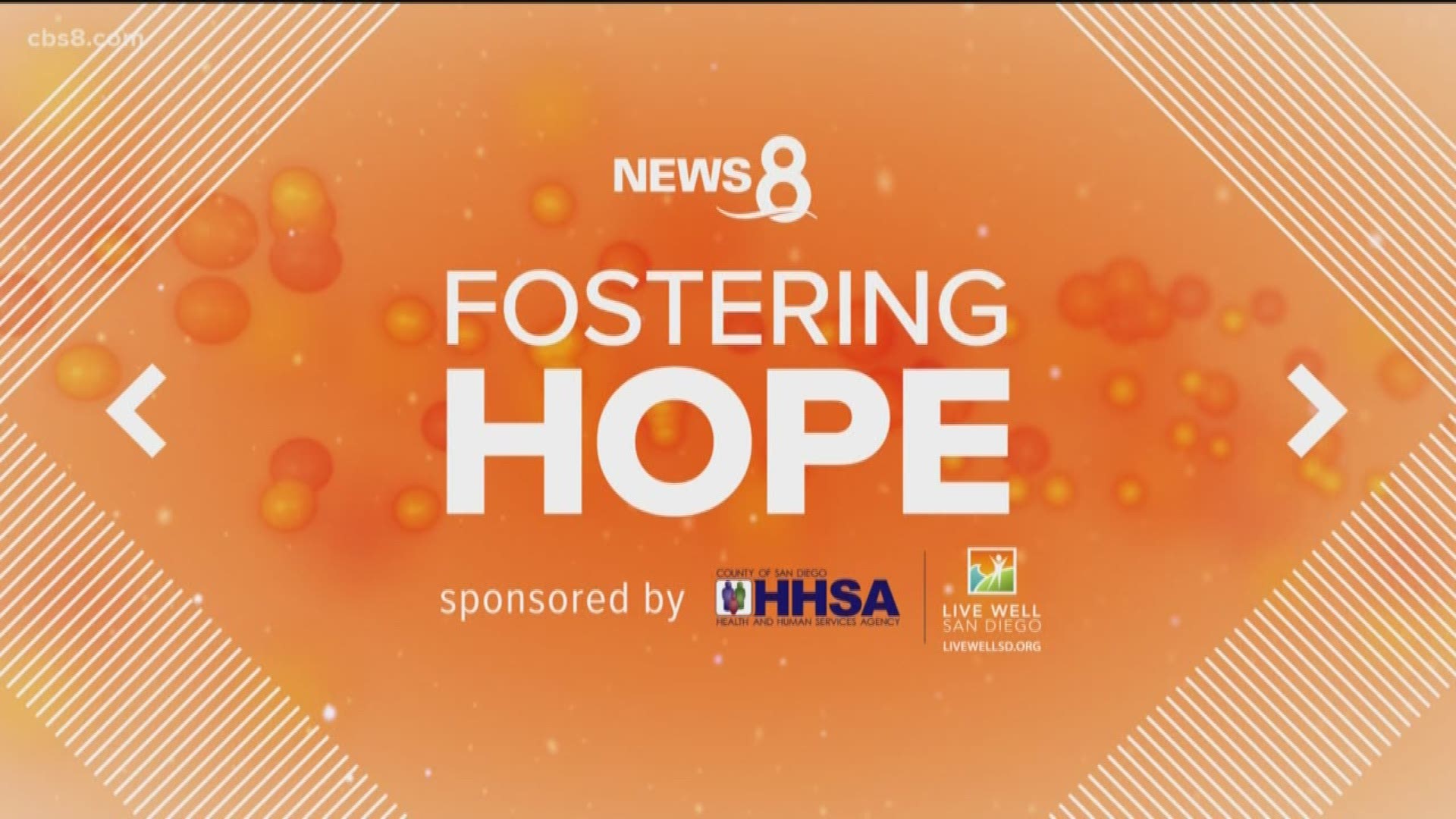SAN DIEGO — After two decades of Adopt 8, News 8 is expanding our focus to include more ways you can help a foster child. Our new mission through Fostering Hope, is shining a light on ways people in the San Diego community can help children and teens through volunteering, mentoring, fostering and adopting.
One instrumental way people can help change the life of a foster child is by becoming a foster family.
Michelle Parada and her partner MaryAnn Donahue have adopted one child, their daughter Tarah, but they've opened up their home to many more children over the years.
"Formally or informally, we've fostered more than 23 kids," Parada said.
As co-founders of All Tribes American Indian Charter School on the Rincon Indian reservation, they sometimes come across students who need a foster family after being removed from their homes by the County of San Diego for their own safety. Many of the kids are eventually reunified with their birth families, but during the process, they need a safe and loving place to stay.
Parada and Donahue try to provide that safe space to as many kids as possible. Even after they leave, they stay in touch with many of them, who have become as close as family.
"Our tribe is pretty big. We love them, love them all," Parada said. "Those kids who we've had come through our house that call my mom 'grandma Carol' - it was by choice, not by blood."
She believes it's important to keep American Indian children with American Indian families, whenever possible.
"To take kids and put him in a situation that's unfamiliar to them, it might be, something as basic as food, might be a trigger to them," said Parada.
She said if they're given food they've never eaten before, for instance, it could cause even more anxiety during an already stressful time.
Their daughter Tarah came to them from the Barona tribe when she was just six months old and they have raised her with deep cultural roots.
"It's been great. It's been so much fun," Parada said. "I couldn't be more proud of my daughter. She's a sweetheart."
Parada would like other foster kids to experience the same type of stability and consistency during an otherwise tumultuous time.
"That's scary, as far as where are you going to lay your head at night. And if it's unfamiliar to you, that's not a position any kid should be put in," Parada said.
One of her dreams is to have a network of families across the different Indian reservations who are preapproved and willing to take in a foster child on a moment's notice. Parada equates it to an emergency.
"Just like our fires... Those are huge disasters, but there's not a disaster bigger than having your children removed," she said.
Parada encourages everyone, both inside and outside of her tribal community, to consider fostering or adopting and help make a difference in a child's life. She hopes sharing her family's story is an inspiration to others.
"I don't care if you're a grandparent, if you have an empty nest, if you are a young parent," she said, "Step up, because you never know what that kid you bring into your house is going to bring into your family, and then how your family grows."
To learn more about becoming a Foster or Adoptive Resource Family with the County of San Diego, please click here.

